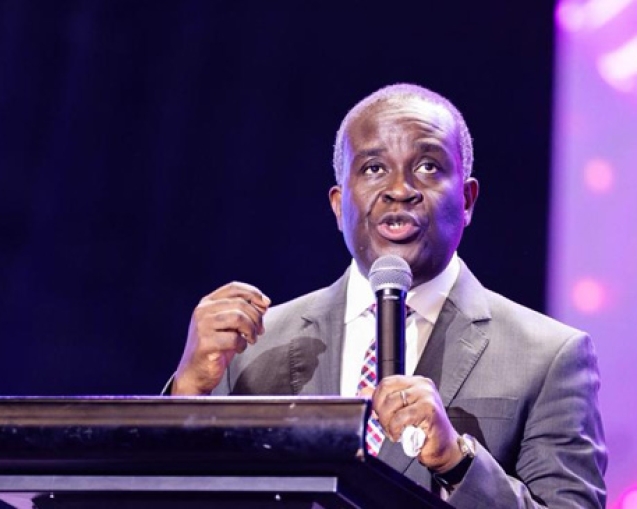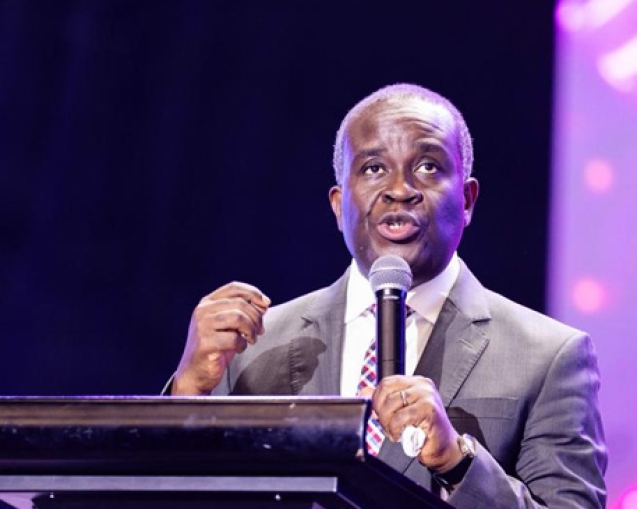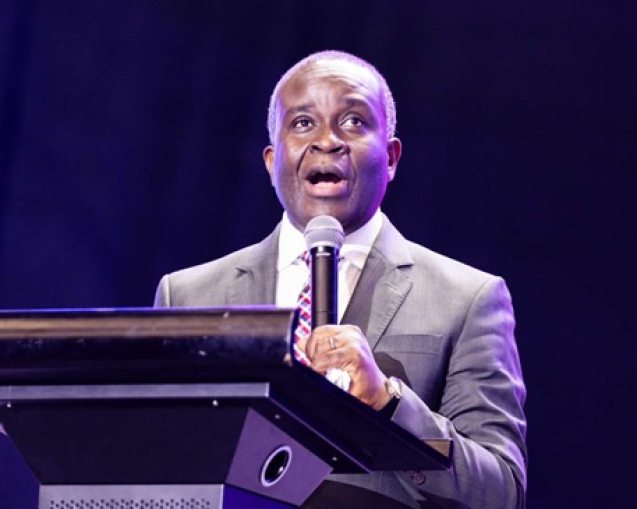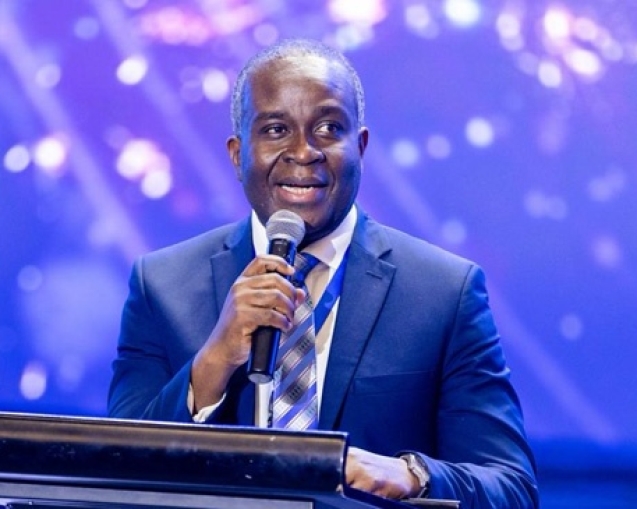Introduction
Since 1912 when William Oliver Hutchinson saw the relevance of the office of Apostle today, God has raised many who arguably ministered in the office. Such a one is Apostle Opoku Onyinah. His life and ministry have been a cogent polemic that the Lord Jesus Christ still has Apostles who He sends to perform a peculiar task for Him in their generations. The Apostolic tradition to which Hutchinson belongs and plays a key role in establishing influenced the Church of Pentecost (CoP) in many ways including governance. This stems from the fact that the Apostolic Church which sent the founder of the CoP, Pastor James McKeown to the then Gold Coast (now Ghana) as a missionary, endorses the five-fold ministry. With the five-fold ministry in operation in the CoP, the Executive Council of the CoP ordained Pastor Opoku Onyinah to the office of an Apostle in 1986 (36 years now). Per the CoP system, a minister retires at the age of 65 years. Apostle Onyinah did at 64 years. Having followed his ministry for many years, I hold by this article that his apostolicity, notwithstanding his retirement, is mighty with the grace of God. Like the latter rain which the farmer looks forward to with trepidation, his apostolic ministry still holds great blessings to be desired even as he ages. These blessings shine through his leadership in various facets of society. It puts forth some principles that would guide Christian leadership in the public space so that the name of Christ is glorified. This essay advocates for looking through the window of Christian leadership that Apostle Opoku Onyinah opens for us. It briefly discusses the concept of retirement with respect to Christian ministry and its implications on the ministerial call of God. It dovetails into how the composure of the Apostle amidst the controversy surrounding the national cathedral of Ghana whose Board of Trustees he chairs, puts him up as a leader par excellence. His relationship with political leaders of different persuasions and quest to shape the Church in Africa are also touched on towards discerning Christian leadership principles of a man whose apostleship shines through even as he turns 68 years.
The Concept of Retirement
Sabbaticals are very important to God. Right from the creation narrative, we see God setting a day apart on which he did no work (Genesis 2:2-3). This concept of rest was translated into the Law of God when God charges his people to “Remember the Sabbath day by keeping it holy. Six days you shall labor and do all your work, but the seventh day is a, Sabbath to the LORD your God. On it, you shall not do any work, neither you, nor your son or daughter, nor your male or female servant, nor your animals, nor any foreigner residing in your towns” (Genesis 20:8-10, NIV). It is important to establish that, God resting on the Seventh Day does not mean that he was wearied from his work of creation. God does not grow tired (Isaiah 40:28). He never sleeps indeed. It is for the well-being of humanity that the Bible brings out that fact. Here, St. Augustine of Hippo’s explanation in his book City of God becomes important. Augustine holds that “God’s rest signifies the rest of those who rest in God, as the joy of a house means the joy of those in the house who rejoice.” The passing of the idea of withdrawing from work into Law became misinterpreted in a very legalistic manner by the leaders of God’s people in many ways, Jesus Christ redirected the focus of the Sabbath to say that “The Sabbath was made for man” and not vice versa (Mark 2:27).
The idea of withdrawing from work is seen further in the call of Levites into the “full-time” ministry. From age 25 years or more they are consecrated for service at the Temple, but they are to retire from active service at age 50 years (Numbers 8:5-25). After retirement, they could assist their brothers who are still in active ministry but the work is to be done by those in the active ministry (Numbers 8:26). By this, they have the opportunity to pass on their experiences from ministry to the next generation.
Apostle Opoku Onyinah had put for this reflection on March 15, 2018, thus ‘Someone may ask, “if God can use people just as they are whether young or old, why do people retire”? As for example, I am about to retire, “does life end at retirement?”’ I would answer directly to say “No.” He does not endorse at all interference in work one has done in ministry during one’s retirement. Though he is confronted with a lot of responsibilities, I reckon that he is doing them with wisdom. Apostle Onyinah had noted that in his retirement he would have more time to enjoy his devotional life and share what the Lord has given him with others. He desires to build the next generation up to understand “African Pentecostal spirituality.” Like the Levites who are to assist their brothers in their ministry, Apostle Onyinah is excelling in what a minister of God is to do in retirement.
Calm in the Midst of the Controversies Surrounding the National Cathedral of Ghana
The age-old church-state discourse in Ghana has been recently revived, sharply, to a noteworthy instance in the history of Christianity in Ghana. This is founded on Akufo-Addo’s experience with the Lord God in which he vowed to build a house for the Lord thus, the vision for the national cathedral of Ghana was born. The decision to carry out this project had a seismic-level impact on Ghanaian society. The public debate it has generated has been hot for an extended period of time. Of course, this in part stands on the fact that the sharing of the vision and the building project proper is a process that would take some time. However, I foresee that the debates it has provoked would stay with Ghana for a long time to come. Apostle Onyinah has been appointed by His Excellency President Nana Addo Danquah Akufo-Addo as the chairman of the National Cathedral Board of Trustees. This was announced by the president on February 8, 2021. By this, the Board of Trustees would have to navigate through a rigorous process of making Ghanaians understand the relevance of the project and giving it the necessary support. This has proven to be a Herculean task indeed.
The discussions against the national cathedral project have largely been socio-economic. The secular nature of Ghana’s constitution and partisan politics also significantly invited debate that is not in favour of the project. Meanwhile, that, Ghana is a religious pluralistic society can also not be ignored as influencing the discourse along that line. Importantly, the issue did not emerge in the public space as an idea cooked in a party-political pot. The national cathedral project comes to bear as a consequence of Akufo-Addo’s realization that God, arguably, does not leave nations to their personal fortune, whether they are theocratic by the constitution or not.
Since his appointment, Apostle Onyinah has been a major victim of the backlash that is connected to the project. Some commentators extremely criticize the Apostle. One person had said, “Opoku Onyinah, God punish you and your generations for supporting Evil.” Let me stop at this. There are hundreds of other insults. Not to mention how Kevin Ekow Badu Taylor bitterly attacked him with words on his Loud Silence Media. I even struggled to quote this one. In the midst of all this, Apostle Opoku Onyinah has been very considerate towards the harsh criticisms that are being leveled against him. His spoken words and write-ups concerning these have always been seasoned with salt. In an interview on Accra Asempa FM, he revealed that he prays for the forgiveness of the critics of the project. He said, “We don’t have to speak against our leaders or insult them because we don’t agree with them on something. So I always pray that God forgives the critics of the National Cathedral.” By this, he has followed the example of Christ who prays for the forgiveness of his killers even as he hangs suffering on the Tree (Luke 23:34).
How Christian leaders present themselves impinges much on the Gospel we preach. It reveals what the Church is made up of. Public Christian leadership principles demand that the Christian leader speaks in ways that would not injure but heal; not destroy but build. The calm of the leader, as is seen in Opoku Onyinah, amid upheavals would earn the Christian leader great honour eventually. If the Christian comports himself well in the public space, it would be a door-opening opportunity for the proclamation of the Gospel.
Relationship with Political Leaders
Apostle Paul in his exposition on how Christians should relate to the state shows that believers in Christ must not see themselves apart from the state but must relate to governments as to God. He pointed out that, “there is no authority except that which God has established” (Romans 13:1, NIV). The involvement of God in secular political life is seen in Pauline’s thought as indicated above in the book of Romans. Apostle Paul taught the Christians not to separate themselves from the concerns of public life. He showed that Christians must relate well with governments. His initial audience finds themselves in Rome, the heartland of the political, economic, and cultural activities of the Roman Empire. The Christians might have been wondering about the place of their newfound faith in Christ within the rigorous politics that was going on then. It might have occurred to them that political authority is antithetic to the authority of God. It did not occur to them the question of why God would vacate from governments, meanwhile, the people he has called by his name are directly affected by the policies of these governments.
Apostle Opoku Onyinah has carved a niche for himself as a man of great concern for the good governance of Ghana. He holds the view that Christians must enter into politics to bring a paradigm shift in the popular idea that politics is dirty. He does not involve in partisan politics but relates well with persons from diverse political divides. This is an important ideal of Christian leadership that must not be downplayed at all by church leaders. They must endeavor to pursue this principle. His excellent relationship with political leaders has earned him a respectable place in the nation. By this, he brings glory to Christ.
The Centre for African Christian Spirituality
As indicated earlier, Apostle Onyinah desires to build young people up to under Pentecostal spirituality in the African context. He has that “I think there is a big vacuum in people’s understanding of African Pentecostal Spirituality. This is what most of my ministry and research have covered. I will still be open to invest my experience in other people, especially the youth, in this area.” This has led to the establishment of the Centre for African Christian Spirituality (CEFACS). CEFACS is a retirement project he chose to pursue. The Centre shares a compound with the School of Theology, Mission and Leadership (STML) campus of the Pentecost University in Gomoa-Fetteh. It currently holds discussions that are open to the general public on pertinent topics pertaining to Christianity in Africa. Some of the topics looked at so far include, “The Ramifications of ‘Prosperity Gospel’ on the Rise of Christianity in Africa;” Are there more Demons in Africa than in the Euro-American West Today? Pastoral Response to the Widespread Deliverance Ministry in African Christianity ─ Origin(s), Impact, Prognosis, and Solution;” “Prophetism and the Rule of Law in Africa: To what Extent must Governments Interfere with the Prophetic in African Christianity?;” “Prophetism and Security Threats in the Majority World: What must Africa Do Going Forward?;” and “Ecumenism and the Proliferation of Churches in Africa: Must Ecumenical Bodies and Governments Allow Anybody who Claims to be Called and Given Power by God to Start a Church in a Nation?”
These conversations have had very renowned scholars in and outside of Africa contributing to the discussion towards shaping Christianity in Africa to the glory of Christ. This becomes important considering the concerns to have been raised in many parts of Africa with regard to the place of the Church in the public space. Issues of disturbing theologies, unethical practices, and flaws in leadership, among others. The glory that the Church is supposed to bring Christ has become compromised gravely. African Christian leadership that is on the cutting-edge must be concerned about these issues and attempt to provide solutions. What is being done at CEFACS would go a long way to make Christians aware of the pertinent issues confronting the Church in Africa in order that the Church would not lose its saltiness in the public sphere.
Conclusion
The prayer of the psalmist that “Even when I am old and gray, do not forsake me, my God, till I declare your power to the next generation, your mighty acts to all who are to come” (Psalm 71:16, NIV), has been answered in the life of Apostle Opoku Onyinah. His apostolic ministry is raining good things on Church and society even in retirement. What his life and ministry have become must provoke the next generation to pursue a kind of Christian that looks upon Christ and strives to bring Him glory every step of the way. Let the waters of exemplary Christian leadership in the public realm fall upon the next generation.
Written by Elder Dr. Stephen Ofotsu Ofoe















